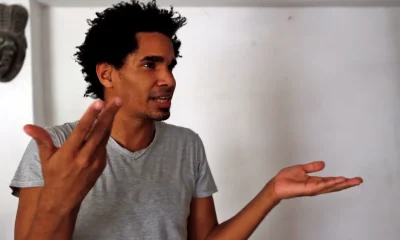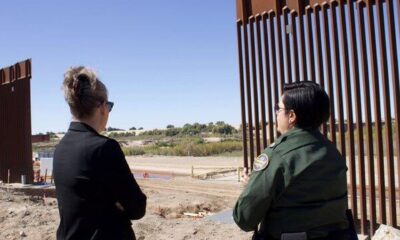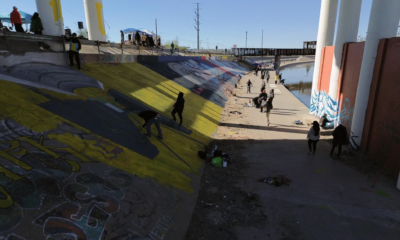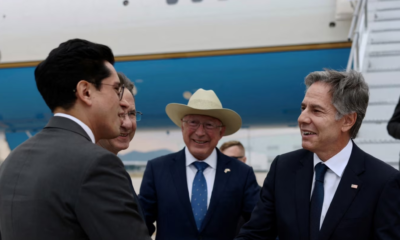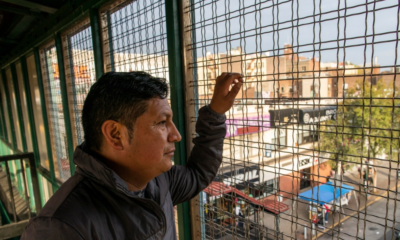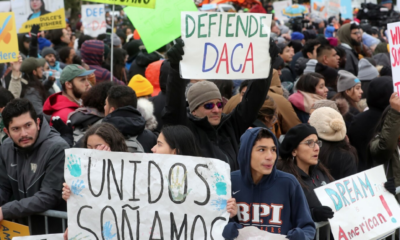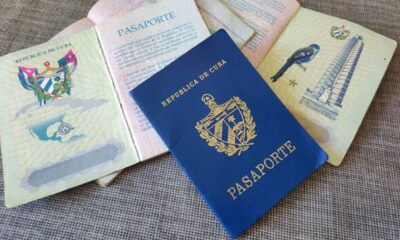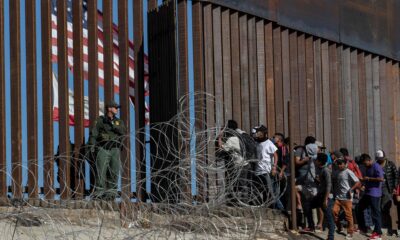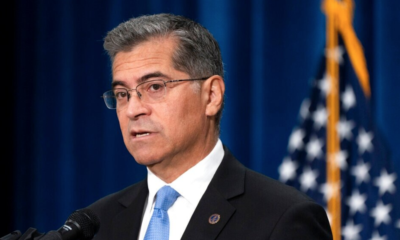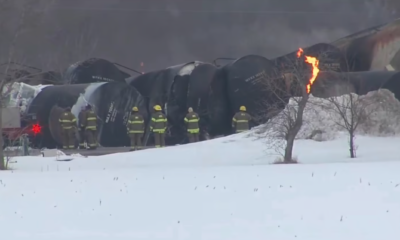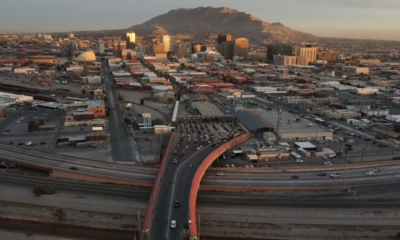International
‘You lose hope’: Cuban exodus to US largest in island’s history
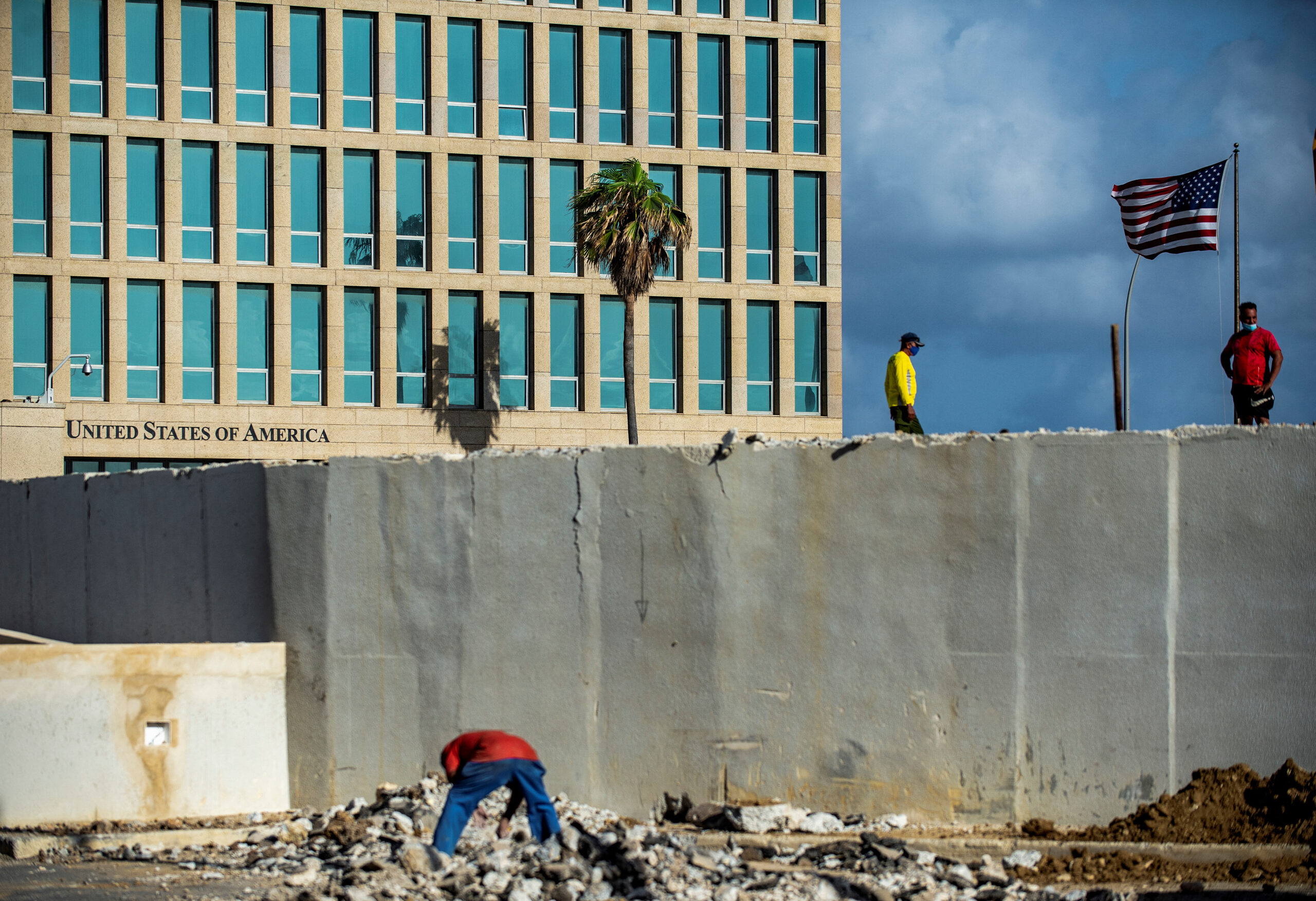
| By AFP | Gerard Martinez with Rigoberto Diaz in Havana |
Exhausted by “surviving instead of living” in Cuba, David Gonzalez set his sights on a new life in the United States.
In early 2022, he joined thousands of Cubans whose migration has amounted to the largest exodus in the Caribbean nation’s history.
Gonzalez, a 34-year-old barber, said he could no longer bear the hardships of a country going through its worst economic crisis since the 1990s, or the communist regime he had never embraced.
In Cuba, “you lose hope,” he told AFP from Miami, Florida, which he reached after a weeks-long odyssey across multiple countries.
That hopelessness, shared by many young people in Cuba, has pushed emigration to the United States to the highest levels on record.
In the year from December 2021 to 2022, border authorities recorded more than 227,000 instances of Cubans illegally entering US territory.
That figure exceeds those of two previous mass departures: the Mariel boatlift, when 125,000 Cubans left for the United States in 1980, and the 1994 departure of 34,000 people to US shores within a month, said Jorge Duany, a Cuba expert at Florida International University.
‘My biggest fear’
Gonzalez’s journey started with a flight to Nicaragua.
The government of the Central American country, an ally of the Havana regime, removed visa requirements for Cubans in November 2021, making Managua the first stop on the road to the United States for most migrants from the island.
The journey cost Gonzalez some $7,000: $3,500 for the airfare and another $3,500 for smugglers to take him overland from Nicaragua to the United States — a huge sum for the average Cuban salary of 3,768 pesos a month, about $157.
Gonzalez scrounged half the money by selling his motorcycle and other belongings. A friend sent him the rest from Miami.
From his 30-day trip through Central America and Mexico, he remembers above all the long rides with dozens of people crammed on a bus or in the back of a truck.
But it wasn’t the prospect of thirst, lack of air, unbearable heat during the day and biting cold at night that scared him the most on the journey.
“My biggest fear was that I would be deported to Cuba,” he said.
Danger at sea
Others choose a different route to the United States no less rife with danger, risking their lives to travel the 90 miles (145 kilometers) of water that separates Cuba and Florida often in makeshift vessels.
On Christmas Day, 15 people were picked up in the Florida Keys, where dozens of Cubans arrive every week.
Mariana de la Caridad Fernandez made the journey in November.
The 20-year-old and her sister Yaneris, 31, had been sentenced in Cuba to four years of house arrest and seven years in prison respectively for participating in demonstrations that shook the country in July 2021.
Having been on the run in Cuba for a month, they decided to make for Miami, where their mother lives.
The sea was calm during the 16-hour crossing with their dog, Toby, and 40 others packed into the boat.
“We panicked a bit when we arrived in the early hours of the morning and had to get off the boat and swim to get to land,” Fernandez said.
A border patrol immediately detained the sisters, but released them on parole, giving them temporary leave to stay in the country.
Aiming to apply for political asylum, they hope to legalize their status under the Cuban Adjustment Act, which allows Cubans to apply for residency a year and a day from when they entered the United States.
‘See a future’
Others haven’t been so lucky.
Many who are picked up in boats by the US Coast Guard are quickly sent back to Cuba, unless they prove their lives are in danger.
Since October 1, the Coast Guard has detained over 3,700 Cubans, more than half the number taken into custody between October 2021 and the same month in 2022.
Then there are the untold numbers of Cubans who die at sea.
In April, a boat carrying 14 men capsized three days after departing Cuba. Only five managed to swim back to the island.
The nephew of Miriela, a Cuban woman who preferred not to give her last name, was one of those who disappeared in the wreck.
“It pains us not knowing what happened to him,” she said.
For Gonzalez, the risks he took to reach Miami were worth it.
Now also on parole, he hopes to avoid deportation until he can try for residency via the Cuban Adjustment Act.
“In eight months I already have what I didn’t have in Cuba,” he said.
“It’s not just the material comforts, but that you can see a future.”
International
Trump Floats “Friendly Takeover” of Cuba Amid Rising Tensions

U.S. President Donald Trump said Friday that his administration is considering what he described as a “friendly takeover” of Cuba, as Washington continues to increase pressure on the island’s communist government.
“The Cuban government is talking to us and they have very serious problems, as you know. They have no money, they have nothing at this moment, but they are talking to us and maybe we will see a friendly takeover of Cuba,” Trump told reporters as he departed the White House for a trip to Texas.
Earlier in the week, U.S. Secretary of State Marco Rubio said Cuba needed a “radical change,” shortly after Washington eased restrictions on oil exports to the island for what officials described as “humanitarian reasons,” amid a deep economic crisis.
The United States has imposed an energy blockade on Cuba since January, citing what it calls an “extraordinary threat” posed by the communist-run island, located roughly 150 kilometers (90 miles) off the coast of Florida, to U.S. national security.
International
Argentina’s Senate Reviews Milei-Backed Labor Overhaul

Argentina’s Senate on Friday began reviewing the Labor Modernization Law promoted by the administration of President Javier Milei, a proposal that would significantly reshape labor rules across the country.
The upper chamber opened its final discussion of the contentious initiative, which revises the method used to calculate severance payments — lowering the amounts owed in dismissal cases — and introduces an “hour bank” mechanism that allows overtime to be offset with paid leave rather than extra wages.
The legislation also broadens the classification of essential services, a change that would place new limits on the right to strike in designated sectors.
The bill was initially approved by the Senate on February 11 and then moved to the Chamber of Deputies, where lawmakers passed it with amendments. It has now returned to the Senate for definitive approval.
Outside the Congress building in Buenos Aires, workers, trade unions and left-wing organizations staged demonstrations beginning at midday. The gathering later thinned out amid reports of disturbances and a strong police presence. Security forces had secured the area surrounding the legislature since early morning hours.
Union leaders contend that the reform weakens labor protections, while many business representatives back the measure but stress that sustainable formal employment will require economic expansion, improved credit conditions, greater investment and a more dynamic domestic market.
International
Federal Judge Blocks Trump Policy Allowing Deportations to Third Countries

A federal judge ruled on Wednesday that the policy of U.S. President Donald Trump’s administration allowing immigration authorities to deport foreign nationals to third countries without prior notice or the opportunity to object is unlawful. The decision marks another legal setback for the administration on immigration matters.
Judge Brian Murphy of the U.S. District Court for the District of Massachusetts struck down the regulation issued last year, which stated that Immigration and Customs Enforcement (ICE) was not required to notify migrants if they were to be sent to countries other than the one listed in their removal order, provided that receiving nations offered assurances they would not face persecution or torture.
Murphy ordered the measure vacated but granted a 15-day delay before the ruling takes effect, giving the Trump administration time to file an appeal.
In his decision, the judge concluded that the policy violates federal immigration law and migrants’ due process rights. He also questioned the lack of transparency surrounding the alleged assurances provided by receiving countries, stating that “no one really knows anything about these supposed ‘assurances.’” He added, “It is not right, and it is not lawful.”
The ruling follows several legal disputes involving deportations to third countries. Last year, the executive branch deported more than 200 Salvadorans to a maximum-security prison in El Salvador, invoking an old wartime law. The White House also held talks with Costa Rica, Panama, and Rwanda about receiving migrants who are not citizens of those countries.
In May, the same judge determined that the government violated a court order when it attempted to remove a group of immigrants with criminal records to South Sudan without prior notice or an opportunity to raise claims of fear of persecution.
Although President Donald Trump took the case to the U.S. Supreme Court, which temporarily allowed the deportations to resume while a final decision was pending, the White House is expected to again appeal to higher courts to overturn this latest judicial ruling.
-

 International2 days ago
International2 days agoFamily of “El Mencho” Seeks Return of Body After Deadly Military Operation
-

 International2 days ago
International2 days agoLarry Summers Steps Down from Harvard Role Amid Epstein Controversy
-

 International2 days ago
International2 days agoIran’s President Optimistic Ahead of Geneva Nuclear Talks with U.S.
-

 International2 days ago
International2 days agoBill Gates Admits “Serious Mistake” Over Epstein Ties
-

 International2 days ago
International2 days agoStephen Hawking Photo Appears in Newly Released Epstein Documents
-

 International5 days ago
International5 days agoOver 40 Million Affected by Major Snowstorm in Northeastern U.S.
-

 International1 day ago
International1 day agoCocaine Production Surges 34% in 2023 as Market Expands into Africa and Asia
-

 International5 days ago
International5 days agoNine People Killed in Two Armed Attacks in Manabí, Ecuador
-

 International1 day ago
International1 day agoFederal Judge Blocks Trump Policy Allowing Deportations to Third Countries
-

 International1 day ago
International1 day agoClinton Accuses Republican Committee of Using Epstein Case to Shield Trump
-

 International9 hours ago
International9 hours agoArgentina’s Senate Reviews Milei-Backed Labor Overhaul
-

 International9 hours ago
International9 hours agoTrump Floats “Friendly Takeover” of Cuba Amid Rising Tensions













































